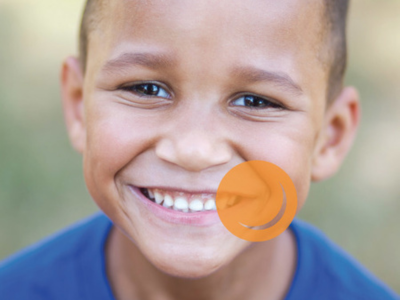Children Teeth Grinding (Bruxism) or Jaw Clenching
Up to 50% of children will grind their teeth at some point and there are solutions available.
Teeth grinding or Bruxism as it is commonly referred to can begin as early as when your child’s teeth first start to appear. There are many factors to consider when determining the reasoning for your child’s teeth grinding, but it is most important to note that temporary monitoring and intervention will help to protect your child’s teeth and reduce possible jaw pain caused by the grinding motion. Now is a great time for us to mention that most children will grow out of this habit, so the gnawing sounds that may be keeping you awake at night should pass too.
Causes of Bruxism in Children:
- Stress: As adults we can often overlook the impact of stress factors on our little ones (particularly those under the age of 8 or so). Stress for your child may include the home and school environment and your child’s own pressures that they place on themselves. It is believed that stress can exacerbate other causes of Bruxism as well.
- Anxiety: Stress and anxiety can often go hand in hand and unfortunately worry and restless behaviours can be linked to teeth grinding in children.
- Sleep Disorders: Such as mouth breathing, sleep apnoea, snoring or frequent nightmares or other sleep disruptions.
- Mental Health or Physical Disorders: Mental health as well as possible associated medications can impact Bruxism in children (and adults) and hyperactivity disorders can also create restless sleep patterns that enhance teeth grinding severity.
- Teeth Movement (or lack there of): Growing children also have teeth growing through at different times and it is thought that misaligned teeth or jaws may contribute to Bruxism.
- Smoke Exposure: It is believed that smokers have twice the chance of developing bruxism related issues than non-smokers and it is considered that secondhand smoke may also increase the likelihood of Bruxism for those surrounded by moderate to high level of exposure.
Signs of Bruxism in Children:
- Damage to, gnawed down (even slightly) or sensitive teeth and gums
- TMJ disorder (when diagnosed)
- Jaw pain on one or both sides of the face
- Headaches that are particularly frequent in the mornings
- Grinding noises when your child is sleeping (some children may grind their teeth during the day out of a formed habit, so these noises can be heard during wake hours as well)
- Eating complications or general unwillingness to eat due to teeth or jaw pains
- Restless sleep if the child is waking themselves up with the grinding sounds or not entering a deep sleep cycle
- Your child is struggling to stay awake during the day or wakes tired
Treatment Options for Children with Bruxism:
- A night teeth grinding guard can be fitted by your dentist following a dental check up or other more affordable options can be purchased in stores. We sell the SOVA Junior Night Guard as a custom fit at home option for parents and recommend up to 2 months use before seeing if the habit has subsided in your child.
- Reducing stress factors where possible and particularly creating consistent and relaxed night time routines. This can include dietary factors during the afternoon and evening as well.
- Avoiding hard foods that may overstimulate the jaw and encourage water intake.
- Facial exercises or a hot/cold compress to the jaw.
- Medication when prescribed by your doctor.

Most importantly, talk to your GP or dentist if you have any concerns about your child grinding their teeth. Bruxism is a common problem and your GP/dentist will be able to assist you to provide immediate solutions and possible longer term treatment plans if required. Remember that Bruxism in children is generally a short term habit that they will grow out of, so intervention may only need to be temporary but can greatly assist your child in the meantime.

